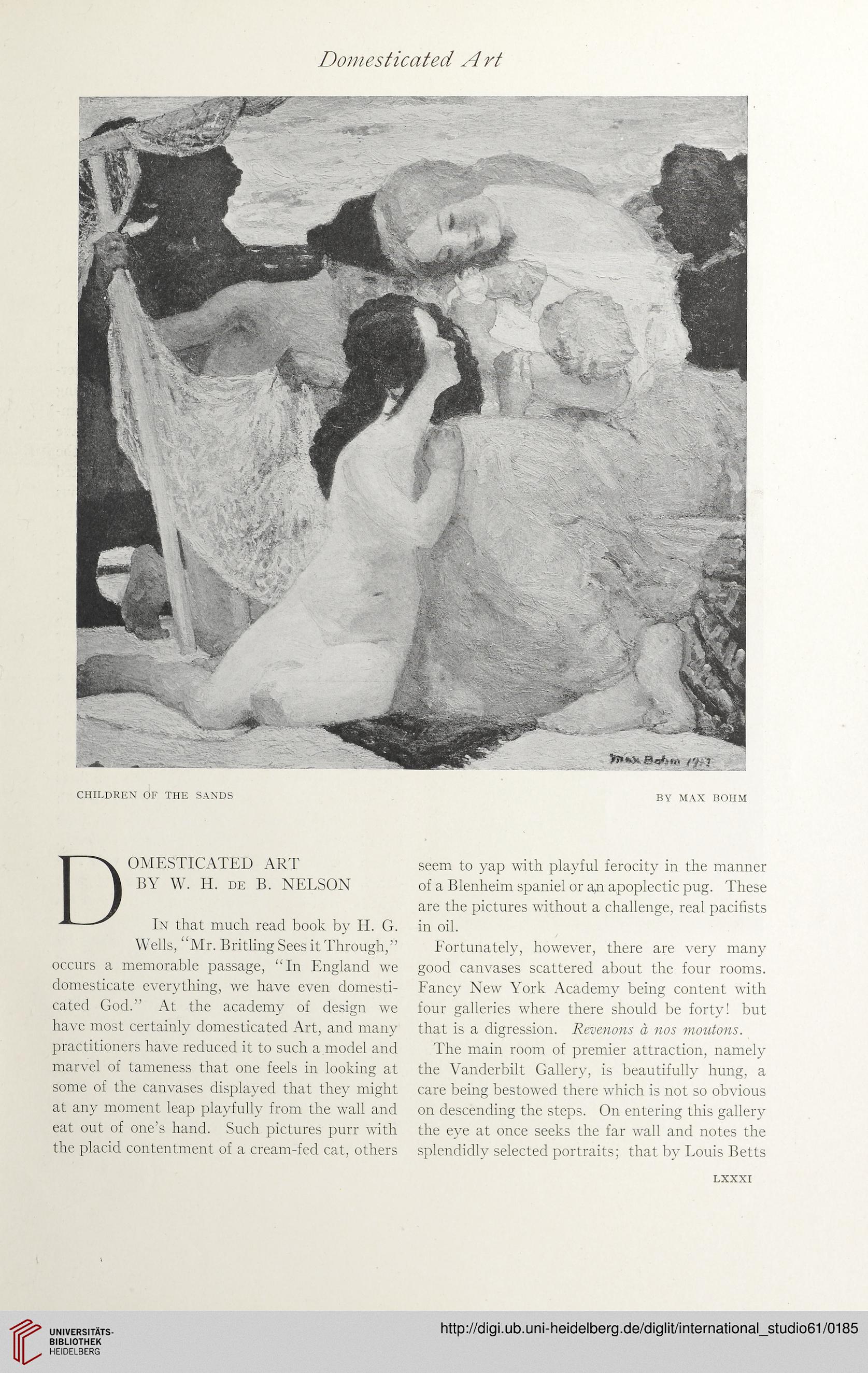Domesticated Art
CHILDREN OF THE SANDS
BY MAX BOHM
OMESTICATED ART
BY W. H. de B. NELSON
In that much read book by H. G.
Wells, "Mr. Britling Sees it Through,”
occurs a memorable passage, “In England we
domesticate everything, we have even domesti-
cated God.” At the academy of design we
have most certainly domesticated Art, and many
practitioners have reduced it to such a model and
marvel of tameness that one feels in looking at
some of the canvases displayed that they might
at any moment leap playfully from the wall and
eat out of one’s hand. Such pictures purr with
the placid contentment of a cream-fed cat, others
seem to yap with playful ferocity in the manner
of a Blenheim spaniel or an apoplectic pug. These
are the pictures without a challenge, real pacifists
in oil.
Fortunately, however, there are very many
good canvases scattered about the four rooms.
Fancy New York Academy being content with
four galleries where there should be forty! but
that is a digression. Revenons a nos moutons.
The main room of premier attraction, namely
the Vanderbilt Gallery, is beautifully hung, a
care being bestowed there which is not so obvious
on descending the steps. On entering this gallery
the eye at once seeks the far wall and notes the
splendidly selected portraits; that by Louis Betts
LXXXI
CHILDREN OF THE SANDS
BY MAX BOHM
OMESTICATED ART
BY W. H. de B. NELSON
In that much read book by H. G.
Wells, "Mr. Britling Sees it Through,”
occurs a memorable passage, “In England we
domesticate everything, we have even domesti-
cated God.” At the academy of design we
have most certainly domesticated Art, and many
practitioners have reduced it to such a model and
marvel of tameness that one feels in looking at
some of the canvases displayed that they might
at any moment leap playfully from the wall and
eat out of one’s hand. Such pictures purr with
the placid contentment of a cream-fed cat, others
seem to yap with playful ferocity in the manner
of a Blenheim spaniel or an apoplectic pug. These
are the pictures without a challenge, real pacifists
in oil.
Fortunately, however, there are very many
good canvases scattered about the four rooms.
Fancy New York Academy being content with
four galleries where there should be forty! but
that is a digression. Revenons a nos moutons.
The main room of premier attraction, namely
the Vanderbilt Gallery, is beautifully hung, a
care being bestowed there which is not so obvious
on descending the steps. On entering this gallery
the eye at once seeks the far wall and notes the
splendidly selected portraits; that by Louis Betts
LXXXI




